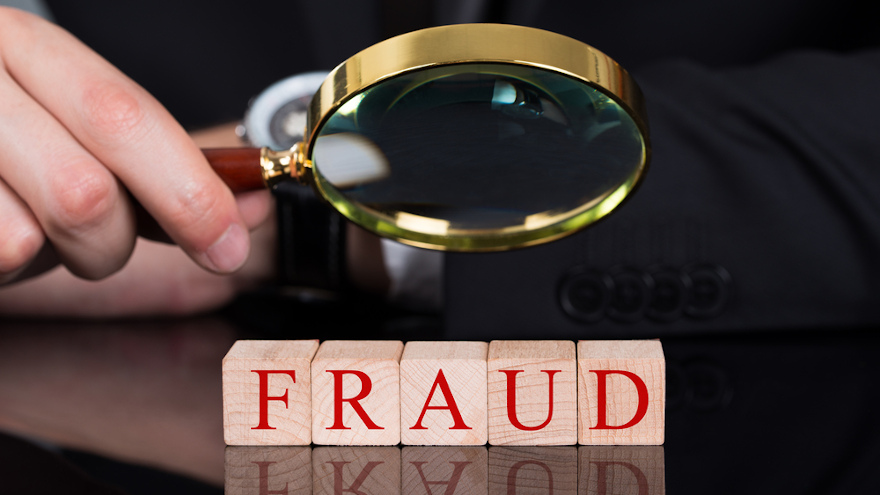Experian pinpoints 5 primary fraud threats to businesses & consumers

By subscribing, you agree to receive communications from Auto Remarketing and our partners in accordance with our Privacy Policy. We may share your information with select partners and sponsors who may contact you about their products and services. You may unsubscribe at any time.
COSTA MESA, Calif. –
Whether it’s the digital path to land auto financing or a spouse, fraud can infiltrate the process, potentially resulting in a broken bank account or heart.
Experian recently released its annual Future of Fraud Forecast, which reveals five fraud threats for the new year.
With consumers continuing to take a digital-first approach to everything from shopping, dating and investing, Experian indicated fraudsters are finding new and innovative ways to commit fraud.
Experts said this year’s threats include:
1. Buy Now, Pay Never
Experian highlighted the Buy Now, Pay Later (BNPL) space has grown massively recently. In fact, Experian indicated the number of BNPL users in the U.S. has grown by more than 300% per year since 2018, reaching 45 million active users in 2021 who are spending more than $20.8 billion.
Subscribe to Auto Remarketing to stay informed and stay ahead.
By subscribing, you agree to receive communications from Auto Remarketing and our partners in accordance with our Privacy Policy. We may share your information with select partners and sponsors who may contact you about their products and services. You may unsubscribe at any time.
“Without the right identity verification and fraud mitigation tools in place, fraudsters will take advantage of some BNPL companies and consumers in 2022,” Experian said.
Experian predicted BNPL lenders will see an uptick in two types of fraud: identity theft and synthetic identity fraud, when a fraudster uses a combination of real and fake information to create an entirely new identity.
“This could result in significant losses for BNPL lenders,” Experian said.
2. Beware of Cryptocurrency Scams
Experian explained digital currencies, such as cryptocurrency, have become more conventional and scammers have caught on quickly.
According to the Federal Trade Commission, investment cryptocurrency scam reports have skyrocketed, with nearly 7,000 people reporting losses totaling more than $80 million from October 2020 to March 2021.
In 2022, Experian predicted that fraudsters will set up cryptocurrency accounts to extract, store and funnel stolen funds, such as the billions of stimulus dollars that were swindled by fraudsters.
3. Double the Trouble for Ransomware Attacks
In the first six months of 2021, there was $590 million in ransomware-related activity, which exceeds the value of $416 million reported for the entirety of 2020 according to the U.S. Treasury’s Financial Crimes Enforcement Network.
Experian predicted that ransomware will be a significant fraud threat for companies in 2022 as fraudsters will look to not only ask for a hefty ransom to gain back control, but criminals will also steal data from the hacked company.
“This will not only result in companies losing sales because of the halt caused by the ransom attack, but it will also enable fraudsters to gain access and monetize stolen data such as employees’ personal information, HR records and more — leaving the company’s employees vulnerable to personal fraudulent attacks,” Experian said.
4. Love, Actually?
Because more consumers went on dating apps and social media to look for love during the pandemic, Experian pointed out that fraudsters saw an opportunity to create intimate, trusted relationships without the immediate need to meet in-person.
Furthermore, the FBI found that from the beginning of January through the end of July of last year, the FBI Internet Crime Complaint Center received more than 1,800 complaints, related to online romance scams, resulting in losses of approximately $133 million.
Experian predicted that romance scams will continue to see an uptick as fraudsters take advantage of these relationships to ask for money or a “loan” to cover anything from travel costs to medical expenses.
5. Digital Elder Abuse Will Rise
According to Experian’s latest Global Insights Report, there has been a 25% increase in online activity since the start of COVID-19 as many, including the elderly, went online for everything from groceries to scheduling health care visits.
“This onslaught of digital newbies presents a new audience for fraudsters to attack,” said Experian, which predicted that consumers will get hit hard by fraudsters through social engineering (when a fraudster manipulates a person to divulge confidential or private information) and account takeover fraud (when a fraudster steals a username and password from one site to takeover other accounts).
“This could result in billions of dollars of losses in 2022,” Experian added.
According to Juniper Research, merchant losses to online payment fraud will exceed $206 billion cumulatively for the period between 2021 and 2025.
“That’s why it’s crucial that businesses get the right fraud prevention tools in place to anticipate future scams and mitigate financial losses,” Experian said.
After finalizing those five predictions, Kathleen Peters, chief innovation officer at Experian Decision Analytics in North America, offered this assessment.
“Business and consumers need to be aware of the creativity and agility that fraudsters are using today, especially in our digital-first world,” Peters said in a news release.
“Experian continues to leverage data and advanced analytics to develop innovative solutions to help businesses prevent fraudulent behavior and protect consumers,” she continued.
Businesses can use Experian’s suite of fraud prevention and identity verification tools “to stay one step ahead of fraudsters.”
Last year, Experian said its fraud prevention solutions helped clients save $10 billion in fraud losses globally.
To learn more about Experian’s fraud prevention solutions, visit https://www.experian.com/business/solutions/fraud-management.


